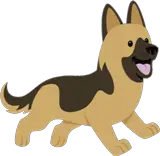Introduction
Ever heard of the term ‘Techichi’? If not, this is your chance to explore a fascinating part of history. In essence, the term ‘Techichi’ refers to a small, ancient dog breed, believed to be an ancestor of the modern Chihuahua. Intriguing, isn’t it? The Techichi has a riveting history that traces back to the early civilizations of Mesoamerica, including the Toltec and Aztec cultures. These little dogs were more than just pets. They were seen as spiritual beings and often played key roles in religious ceremonies and rituals. This may seem surprising to many, but the humble Techichi carries great significance. They held an esteemed position in ancient societies and their influence continues to resonate in today’s modern dog breeds.
| Category | Information |
|---|---|
| Breed Name | Techichi |
| Origin | Mesoamerica |
| Size | Small |
| Fur Type | Short, Smooth |
| Fur Color | Fawn to Dark Brown |
| Life Span | Unknown |
| Diet | Omnivorous |
| Temperament | Loyal, Intelligent, Agile |
| Role in Ancient Societies | Religious Symbolism, Afterlife Guide |
| Modern Descendants | Believed to be the Chihuahua and potentially other small dog breeds |
Unraveling the History of the Techichi
Archaeological Evidence and Early Finds
Historical research and archaeological finds suggest that the Techichi was present in Mesoamerica long before the arrival of the Europeans. Artifacts such as pottery and figurines frequently depict images of these small dogs, showcasing their importance to ancient peoples.
Techichi Across Ancient Civilizations
Now, let’s delve into the relationship the Techichi had with various ancient civilizations. In Mayan culture, Techichi-like dogs were often seen in carvings and murals, indicating their presence and importance. Toltec and Aztec societies also considered the Techichi to be an integral part of their daily lives and spiritual practices.
Adapting and Evolving: The Journey of the Techichi
Over time, the Techichi adapted and evolved to survive in the diverse regions of Mexico. These changes were not just physical but also influenced their behaviors and traits, making the Techichi a truly versatile breed.
Characteristics of the Techichi
Physical Attributes of the Techichi
These little dogs were known for their small stature and robust physique. A Techichi typically had short, smooth fur and their color ranged from fawn to dark brown. It’s their round apple-shaped head and large expressive eyes, however, that often grabbed the most attention.
The Behavioural Traits of Techichi
Besides their physical attributes, the Techichi also had a distinctive personality. They were known to be loyal, intelligent, and remarkably agile. Techichi dogs were known for their alertness and were often used as watchdogs.
Regional Variations and Adaptations
The Techichi showed notable adaptations based on the regions they inhabited. Some had longer fur, a characteristic believed to have evolved in response to colder environments. In contrast, Techichis from warmer regions maintained short, sleek coats.
Modern Breeds and the Techichi’s Influence
The Chihuahua and the Techichi Connection
If you are a fan of the tiny, feisty Chihuahua, you would be fascinated to know that this modern breed has a strong link with the ancient Techichi. Genetic studies suggest that Chihuahuas descended from the Techichi, retaining many of the ancient breed’s distinctive physical and behavioral traits.
Influence of the Techichi on Other Breeds
While the Chihuahua is the most recognized breed associated with the Techichi, other breeds also show signs of Techichi influence. These include several small breeds that share similar traits, such as the Chinese Crested and the Xoloitzcuintli.
Genetic Echoes of the Techichi
Scientific research into canine DNA has unveiled that the genetic impact of the Techichi extends beyond their direct descendants. Traces of their genes can be found in various dog breeds, reaffirming the Techichi’s significant role in canine evolution.
Mythology, Rituals, and the Techichi
Techichi Symbolism and Spiritual Significance
In ancient societies, the Techichi was not just a mere pet, but a symbol of the spiritual world. They were believed to guide the souls of the deceased to the afterlife, demonstrating their sacred standing within these cultures.
Techichi’s Role in Rituals and Ceremonies
Techichis were often involved in sacred rituals and ceremonies. Their presence was seen as a way to please the gods and ensure prosperity and good health for the community.
Afterlife Beliefs and the Techichi
The Techichi’s role extended into the afterlife, too. Some cultures believed that these dogs would continue to guide and protect their human companions even after death. This belief further elevated the status of the Techichi in these societies.
Reviving the Legacy of Techichi: Modern Efforts
Preservation Initiatives for the Techichi
Despite their historical importance, the purebred Techichi is believed to be extinct today. However, multiple initiatives are in place to preserve their legacy. These efforts are focused on studying their genetic makeup and fostering the traits they passed on to modern breeds.
Techichi Traits in Modern Breeding Programs
Interestingly, the legacy of the Techichi continues in modern breeding programs. Several breeders are keen on preserving and enhancing the traits inherited from the Techichi in breeds like the Chihuahua.
The Status Quo of Techichi Breed
The question of whether the pure Techichi breed exists today remains unanswered. Nevertheless, their influence lives on, and they continue to be celebrated as an integral part of canine history.
The Techichi and its Ecological Role
The Techichi’s Ecological Niche
An interesting facet of the Techichi’s existence that’s often overlooked is their ecological role in the ancient Mesoamerican environments. These small dogs had a specific ecological niche, affecting and being affected by the local wildlife and ecosystems. For instance, as omnivores, Techichis would have influenced the populations of smaller fauna and flora, contributing to the biodiversity and ecological balance of their habitats.
Interactions with Wildlife
Similarly, the Techichi’s interaction with other wildlife species would have influenced their evolution and adaptation. These interactions could have included everything from competitive relationships for resources to symbiotic ones. These aspects provide a more holistic view of the Techichi’s role in their environment, extending our understanding beyond their physical and cultural aspects.
Techichi’s Dietary Practices
Techichi’s Ancient Diet
Our exploration of the Techichi would not be complete without touching on their dietary practices. Based on archaeological evidence and cultural accounts, it’s believed that the Techichi was an omnivore, capable of eating both plant and animal matter. Their diet likely included small game, insects, and various fruits and vegetables available in their environment.
Influence of Diet on Techichi’s Health
The diet of the Techichi not only provided them with the necessary nutrition but also likely affected their overall health and longevity. It would have influenced their dental health, bone strength, and metabolic processes. The diet could also have played a role in shaping their adaptive traits, helping them survive and thrive in diverse environmental conditions.
Conclusion
As we wrap up our journey through the fascinating history of the Techichi, it’s clear how significant this breed has been. From being an integral part of ancient societies to influencing modern breeds, the Techichi has left an indelible mark on canine history. While we’ve learned a lot about the Techichi, there’s still much to explore. Future research could delve deeper into the genetic connections between the Techichi and modern breeds. This could reveal more about our furry friends’ evolution and their historical journey. As we say goodbye to this topic, it’s important to appreciate the role that the Techichi has played over the centuries. These small dogs were not only companions but spiritual symbols and protectors. They’ve left an enduring legacy that continues to fascinate dog lovers and historians alike.


